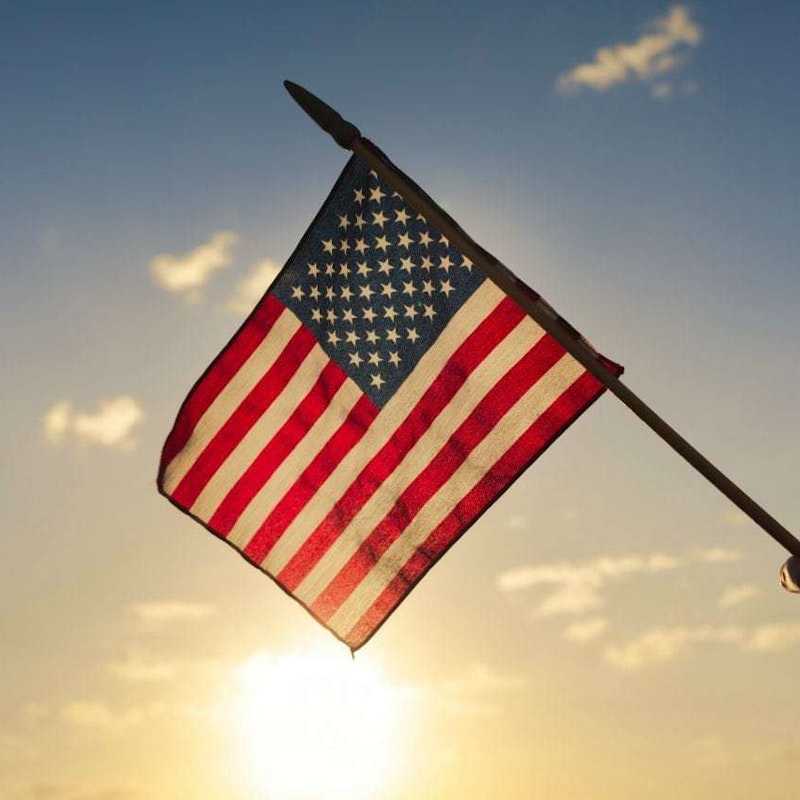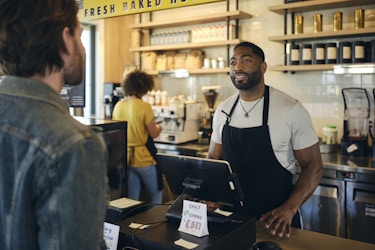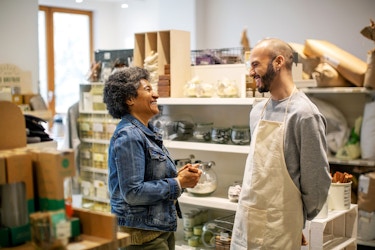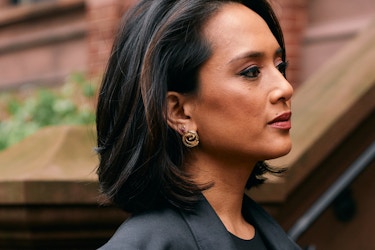Tariffs:
Small Business Tariff Update: What to Know Now
U.S. Chamber of Commerce experts share the latest on trade tariffs and what small businesses should know.
Apply Today
10 Reasons to Apply for the CO—100
The CO—100 is the U.S. Chamber of Commerce’s expanded small business awards program. Read on to find out more about the program and how to apply.
Tariffs
Events
Small Business Tariff Update: What to Know Now [+ Video]
U.S. Chamber of Commerce experts share the latest on trade tariffs and what small businesses should know.
Growth Studio
Tariffs on Imports Rocking Small Businesses as They Scramble to Adapt
Business owners say tariffs will impact their ability to grow and hire and are already making them less profitable.
Budding Entrepreneurs
250+ Business Ideas to Spark Inspiration
Explore opportunity with our collection of 250+ business ideas, crafted to inspire and guide aspiring entrepreneurs.
Working Late? You’re Not Alone
You’re short on time and busy putting out fires. Sign up for our newsletter, Midnight Oil, and find out what you need to know to adapt and thrive tomorrow.
Sign UpCO— BrandStudio
Latest—
Wix Exec on How Its YouTube Integration Is Helping Small Businesses Lean Into the Growing Social Shopping Trend
After a successful B2B partnership with Google Shopping, website builder Wix wants to make it seamless for merchants to sell their wares on YouTube, too, VP Oren Inditzky tells CO—.
How to Learn AI Tools
Learning how to navigate AI tools can feel overwhelming, but all it takes is a little time and curiosity. Here are strategies to help you get started.
RUN
HUMAN RESOURCES
How to Create an Employee Training Program
Employee training should help further your employees’ professional goals and your top business priorities simultaneously.
Small Business Day 2025 CO—100 Panel on Growth and Success
Three CO— 100 Honorees explain how they’ve disrupted their industries, built loyal customer bases, and navigated challenges during a live panel at Small Business Day 2025.
Small Business Day 2025: Growth Insights from Tuckernuck CEO
Jocelyn Gailliot, Co-Founder and CEO of apparel boutique Tuckernuck, shares the brand’s journey from a bootstrapped e-commerce startup to a profitable omnichannel retailer.
Small Business Day 2025: Small Business Update
During Small Business Day 2025, Neil Bradley of the U.S. Chamber of Commerce discusses how issues like tariffs, the economy, and immigration are impacting small businesses.
Gen Z and Men Drive Fragrance Boom
The fragrance category grew faster than any other beauty segment in 2024. Industry leaders unpack just how.
How Tech and Brand Adoption Are Driving Secondhand Retail Boom
The consumer appetite for pre-owned goods continues to accelerate, and new technologies that make it easier to sell and buy secondhand are fueling sales.
Restaurant vs. Retail POS Systems
Explore the differences between restaurant and retail POS systems for small businesses.
Small Businesses Serving up Pickleball Products
Limited variety in the market and dull, utilitarian product design led these five small businesses to give pickleball gear a bit more personality.






























